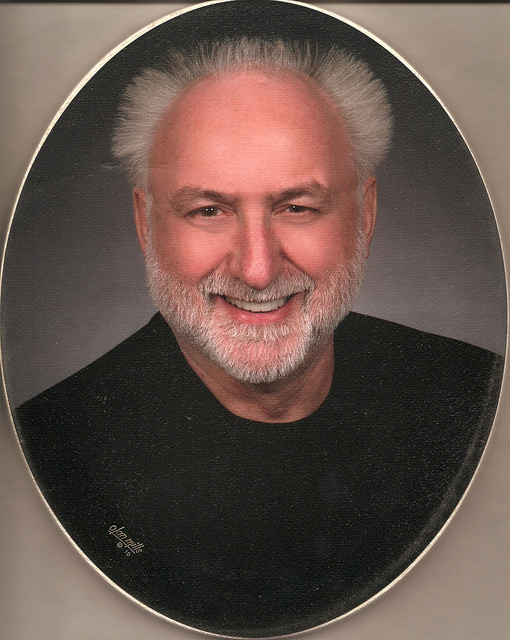Jerry Von Korff
St. Cloud resident since 1978
Family: Wife Connie (elementary teacher and reading tutor); three sons, Joshua, Michael and Ben, all Technical High Shool graduates.
Brief biographical background:
Education: Bachelor’s degree with honors in economics; master’s in teaching with focus on teaching disadvantaged students. Teacher – high school mathematics and social studies, Washington, D.C. and New York. Juris Doctor, Georgetown Law. Practiced law since 1975. My practice includes advice to local government, personnel, construction and appellate law. I was involved in PTA, chaired two operating-levy campaigns; tutored and volunteer-taught in the schools.
Why are you qualified to serve on the school board?
I’ve been able to work collaboratively in support of much-needed changes. Together, we eliminated deficit spending, restored our operating reserves to promised targets, reformed our health-insurance benefits program benefitting taxpayers and employees. Actively supported new Kennedy K-8 school and its new addition.
Our growing financial strength has enabled us to target new money to the classroom for class-size reduction, textbooks and technology. All of this was accomplished while keeping our school property taxes at the lowest level of the big four districts in our area. Next year, a typical home in St. Cloud will pay school property taxes from $107-$250 per year less than paid by a home with the same value in Sartell, Sauk Rapids or Rocori school districts.
Long before my service on the board, I supported teachers at Tech and Apollo in their efforts to build the most comprehensive range of advanced courses in our area. I was actively involved in the recruitment of Superintendent Watkins and as chair I’ve been strongly supportive of the efforts of Superintendent Jett significantly to improve our efforts to educate struggling students.
There is a constant tug-of-war about school testing. Do they count or don’t they? How much credence should we ascribe to so many tests? Do they truly help improve education or do they cause more stress and misguided focus than they are worth?
Minnesota tests students in the spring using the Minnesota Comprehensive Assessments. Non-disabled English-speaking students who have home support tend to do well on these tests. Students with disabilities, non-English speakers and students with little home support tend to do poorly. Because the tests are given in April, and the results are returned in October, they are useless to guide instruction, and so they serve primarily to announce what percentage of students with learning challenges attend each school. An extraordinary amount of classroom time is thus devoted to testing that has no impact on learning.
Most teachers believe in frequent testing, but they want tests that support teaching and learning. They need test results right away so they can use the results to determine who is ready to move on, who can accelerate their learning and who needs interventions. But when tests are given in April and the results are scored and returned in October, they can’t assist instruction, and they come too late, even to be used to plan instructional improvements for the next year. Testing itself is not the enemy, nor is accountability: only wasteful, meaningless, time-wasting testing is the enemy. That’s what we have today. The current testing strategy has been an abject failure in Minnesota and across the country.
There is mounting evidence when teachers use meaningful testing data to drive instruction and do that as part of well-constructed curriculum, student achievement can improve markedly. The entire testing regimen needs to be redesigned with both accountability and classroom instruction in mind, so quality tests provide immediate assistance to teachers to provide interventions for students who are not progressing.
Horrific examples of bullying continue to make local and national news. Have you closely examined the district’s policy about bullying? What would you change, if anything, in that policy?
Policy is not the primary issue in districts that have bullying problems, but rather practical implementation. Every member of the staff must do his/her part to provide a caring environment that encourages students to seek help for bullying concerns. Systemically, schools must assure students make connections with adults and that adults hear their concerns. You can read much more about what we are doing in our school district in the online materials that were considered by the Board at our September meeting. Link to: https://v3.boardbook.org/Public/PublicItemDownload.aspx?ik=35952090.
Do you think sports are overemphasized or underemphasized in this school district? Do you think the district spends too much – or too little – on sports activities?
I think we get the balance just about right. Activities budgets suffered greatly in our district during the past several decades as a result of financial challenges. If the State continues to provide modest increases in school funding, as it did in the last biennium, we should be able to provide some relief to activities budgets (sports and extracurricular). Our activities budget needs a comprehensive review, and we’ve agreed to launch just such a review.
What should happen to Tech High School?
I’ve posted several detailed discussions on my blog, the latest is here: http://jvonkorff.blogspot.com/2014/09/consensus-required-to-build-new-tech.html. I support the collaborative process envisioned by our superintendent, which will seek to bring community representatives together to study alternatives and make a recommendation to the superintendent and board.
Do you think the theory of evolution should be taught in schools, with or without the theory of creationism?
Understanding the scientific basis for evolution is critical to an understanding of modern science, and the evidence for evolution is integral to the teaching of science. Faith represents a means for discovering great and important truths, but it’s the domain of religion. Public education must respect faith, but it is not our job to teach it.
Von Korff





